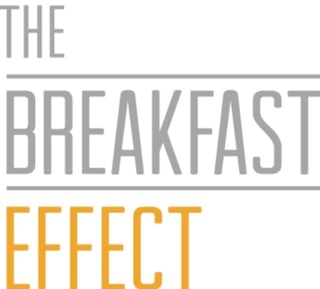 Have you heard of the saying, "you are what you eat?" Well, studies indicate that when you eat may be just as important as what you eat.
Have you heard of the saying, "you are what you eat?" Well, studies indicate that when you eat may be just as important as what you eat.
It is commonly reported that breakfast is the most important meal of the day. Although breakfast is the meal the greatest number of Americans view as important to a healthful diet, less than half of all Americans (44 percent) eat breakfast 7 days a week. And, interestingly enough, the trend to skip breakfast is occuring at a time in history when the obesity epidemic is worsening, which has led to significant interest in the possible role that breakfast plays in weight control and related disease risks.
Research indicates that 74% of breakfast skippers do not meet two thirds of the Recommended Dietary Allowance for vitamins and minerals compared with 41% of those who consumed breakfast.
As studied in the Journal of the American College of Nutrition, individuals who skip breakfast have higher mean BMIs, even after adjusting for gender, race, socioeconomic status, and other lifestyle factors.
In a scientific statement by the American Heart Association, skipping breakfast can have various effects on heart health, and can lead to obesity, insulin resistance, and high blood pressure.
In another scientific statement, skipping breakfast may be linked to poorer overall diet quality, may lead to increased appetite, which leads to weight gain over time, and may increase risk factors for diabetes and cardiovascular disease.
Related Article: These Foods Can Help Save Your Memory
Related Article: New Study: The Link Between Obesity and Cancer
On the other hand, regular breakfast consumption may reduce the risk of chronic diseases due to the potential impact on the composition of the overall diet.
This is supported by research that shows that breakfast eaters consume higher-quality diets compared to breakfast skippers. Breakfast consumers tend to have greater intakes of vitamins and minerals such as calcium, vitamin A, vitamin C, riboflavin, zinc, and iron as well as intake fewer calories, and less dietary fat and cholesterol.
As fiber is a primary source of breakfast food, eating breakfast may also help promote cardiovascular health. Diets rich in fiber and whole grains reduce risk of coronary heart disease. Soluble fiber in oats and oat-based products can significantly reduce total cholesterol consumption.
In conclusion, breakfast can have a positive impact on nutrient intake, food group consumption, and may contribute to weight control and overall health.
Questions or comments? Please fill out the form below.
